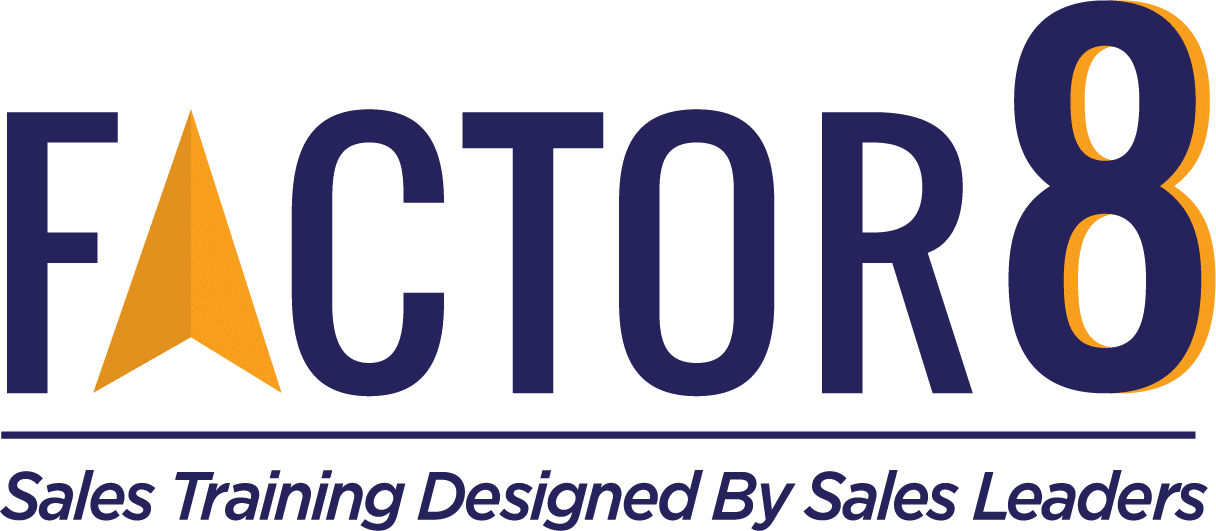How to Level Up Your Team with Sales Training
If you’ve been reading our blogs, I’m sure you know that I strongly advocate for developing your people. When I was a sales manager and director, this was my special sauce – and I got better results, engagement, and retention than my peers when I focused on sales team training. Then I went and started 2 companies to help other revenue leaders do the same.
Whether it’s team size, competing priorities, or simply a previous failure to plan, I encourage you to invest in your people. In fact, there’s never been a more important time than now to train your people (Hello, “Great Resignation”).
Need help? Keep reading…
Why NOW Is the Time for Sales Team Training
True story: 10 years ago I stood on my first keynote stage and showed a picture of a baby with a headset. I captioned it with, “The ability to train/retrain people will be a critical differentiator.”
Lots of people laughed at the picture, but I don’t think anyone really took note. Please forgive me for what’s about to happen…
I TOLD YOU SO!
OK, now that’s out of the way. Whew, better.
Why you ask? Because it’s next to impossible to find talent. For a good twenty years, the gold standard was:
- College degree
- 2 years of sales experience
- Played a competitive sport
In today’s super-employment and talent-short economy, these people just don’t exist! A good 50% or more entry-level sales rep jobs are BDR/SDR jobs, and the average lifespan of this role is under eighteen months.
So as sales leaders around the world lament the talent shortage (and come together to jointly blame recruiting – poor folks), the smart ones are doing two things:
- Hiring new and creative talent sources
- Hanging on to the people they’ve got
And how do you do this, pray tell?
Hiring from New Talent Pools
My favorite new hire is a caregiver looking to reenter the workforce (i.e. working moms). These superheroes can multitask, get more done by noon than the rest of us do in 3 days, and frankly, they’re just grateful to talk to grown-ups.
More creative sources:
- Tradespeople – If you sell to mechanics, go hire a mechanic.
- Customer Success/Service – I’ve literally never recommended this before, but they know your product and will love a chance at commission. Just profile/test first for proactivity and persistence.
- English Majors – Maybe THEY can compose a decent email.
- Wait Staff – Hustle (period).
- Community College Students – Flexible schedules, coin-operated.
Take a hard look at your normal criteria and try to throw half out the window. Hire for behavior vs. skill and street smarts vs. experience.
The key to making this work? You’re going to need a robust sales training program. That’s right, new hire AND ongoing training, PLUS manager development (because these people will need coaching). Listen, even when I’ve trained teams with 2-10 years of experience, they still needed sales skills training. There are some appalling habits out there – not to mention new channels (virtual) and technologies (Zoom) necessitating the upskill.

How? Outsource what you can and budget for a trainer ASAP. Yes, you’ll need both a budget and an internal person – check out this blog to help create your sales training budget. Here’s why: some stuff HAS to be built.
Every good training program includes the following components:
- Sales Skills – outsource – hey, I know a vendor (keep scrolling to contact us 😉)
- Systems Skills – outsource from your vendor
- Process Skills – only you know how to get stuff done at your company
- Product/Service Skills – a trainer can translate boring product info and glossy marketing info
- Acumen – business and industry – this can go halfsies
It can take up to a year for a strong training headcount to develop all that needs to be taught in onboarding – and then we’ve got ongoing training, manager development, and more. Trust me, you’ll be glad you outsourced for a few years and wish you’d hired twice the headcount by end of year. Here’s another important reason why…
If you’ve been relying on your managers to train their newbies, it’s time to stop. Why?
- They’re bad trainers (sorry)
- They should be coaching it, not training it
- They’re too busy (interviewing alone could be full-time)
How Sales Training and Development Helps You Keep People
The most important thing to remember here is: It’s a buyer’s market.
They literally have five other sales job options. Does the training they get play into their decision to stay? Hell yeah. Research by Forbes states that 87% of millennials want professional development and career growth opportunities (more so than a hefty paycheck!). They may also care more about social causes than their paycheck, but hey – good thing they will inherit the Earth!
If you’re losing people in the first 3 months, it’s a red flag your onboarding program isn’t working. (Six to nine months, I recommend you look at the manager, but that’s a different blog).
The next most important point to remember is: Nobody likes feeling like they stink.
If they feel successful, they will stay. I can’t tell you how many reps have told us they were getting ready to leave before our training, or that they’re feeling excited now to come to work tomorrow. There actually are skills to help them get a hold of more people, capture attention, and get callbacks. Give them the gift of actual selling time with prospects and they’ll keep coming to work.
Development can help you keep folks by aligning skills training to career paths. We both know that reps under 25 would like a promotion for two straight weeks of success and when we don’t feel like enabling that, we just go back to review point one, am I right? So build out micro-promotions with skills training. It will take your trainer a few months to get mapped out and aligned (or contact us to use our standard pre-built skill paths!), and Boom! You’re in business.
Great career paths include time on the job, skills, development, and results. You’ll see rep engagement and longevity increase simply by having and communicating the program. And remember, development is a reward to this generation! Kicking butt!? Congrats! You’ve earned a course to get even better! Crushing the job? Awesome, you’ve unlocked the BDR Level 2 or AE Level 1 career path!
Finally, a word from the guilty. Although I’ve built and delivered and preached thousands of training courses and programs, this is the first year I’m finally putting development into my own budget. Now that Factor 8 is over ten people – all with different jobs – I’ll solve this by simply giving folks a budget to find their own development. Could be a course, a conference, or a coach. Their choice. If your hands are tied every other way, get SOMETHING in the budget so it’s easier next year and the year after. Your future self will thank you.
Ready to invest in sales team training?
Contact us today to request information on our customizable virtual sales training programs
available for reps (and managers).

